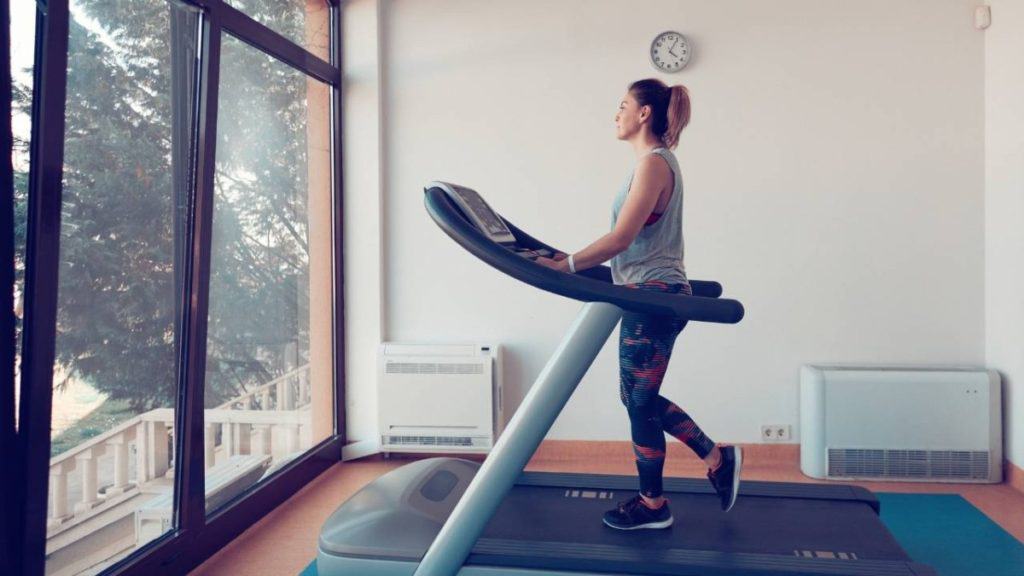
The minute you begin, set a goal to try walking for 30 minutes on weeknights or 45 minutes on weekends. If the alarm goes off at 6 am in the morning, get up immediately and start your walk! You don’t want to overdo it so be cautious of how long you’re actually walking. Average times are extremely useful since they give you a goal to aim for, but ultimately it is up to you how long you want to walk for.
The average speed for a person to walk 2km is usually around 4kph, implying that the typical time it takes to walk 2km is 30 minutes. However, this time may vary based on your intensity/speed, age, weight and fitness levels.
Table of Contents
The Average Time it Takes to Walk 2km at all Speeds

The length of time it takes you to walk 2 kilometers is mostly determined by how quickly you walk. If you stroll at a slow speed, comparable to a neighborhood stroll, it will take around 36 minutes. However, if you increase the pace and walk at a comfortable pace, it will take around 30 minutes. And if you walk at a brisk pace or even a power-walk, it will only take 18 minutes on average.
However, unless you can regulate your speed, maintaining a fast gait for the entire walk is difficult. As a result, you’ll most likely walk at a pace of about 4-5 kilometers per hour, a rapid stroll. However, if you want to complete a 2 kilometer time in less than 15 minutes on foot (2 km/h), you’ll need to walk at a pace of approximately 6-7 kilometers per hour.
Here’s a table of distance, time, and intensity level required to accomplish an average 2km time on foot. These times may be altered based on the sort of walking you do and whether or not you utilise a treadmill.
| Speed in km | Intensity Level | Average Time to Walk 2km in Minutes |
| 2.4kph | Very Slow | 50.00 |
| 3.2kph | Slow | 37.30 |
| 4.0kph | Moderate | 30.00 |
| 4.8kph | Brisk | 25.00 |
| 5.6kph | Very Brisk | 21.26 |
| 6.4kph | Fast | 18.46 |
| 7.2kph | Very Fast | 16.40 |

What is the Best Speed to Walk 2km?
The optimum and most comfy walking speed for 1km is between 4 and 5 kilometers per hour, which is considered a moderate to fast walk. You should be able to still maintaining a conversation at this speed but you will start to notice fatigue in the legs after the first 1km.
Unless you are walking on a treadmill, it’s difficult to know what speed you are walking at; therefore, investing in a fitness watch can calculate your rate using a GPS can be worthwhile. I use the Fitbit Versa 3, which is a fantastic watch with everything you need for any exercise or workout.
[amazon box=”B08DFPZG71″ Title=”Fitbit Versa 3.” description=”The Fitbit Versa 3 has unbelievable data and analytics, which is great if you want to know track your progress. It has a full GPS system and doesn’t need your phone to connect. The best part of the Fitbit is the incredible battery life which gives you around 6 days between charges.”]
Walking 1 kilometer at a certain speed will depend on your fitness and the amount of time you have. If you’re just getting started, walking slowly is probably the best option. However, if you are in good shape and have some extra time, going faster would be more beneficial. Ultimately, the greatest speed is the one that you can maintain for the entire walk.

Can I Walk 2km Every Day?
Healthy adults may take between 4,000 and 18,000 steps each day, with 10,000 steps being a reasonable target for healthy individuals according to a studies. As a result, if you want to remain healthy, you’ll need to walk more than 2 kilometers every day since 2km contains only 2800 steps.
Walking 2 kilometers a day is a moderate amount of activity and is unlikely to cause any problems for the majority of individuals. However, if you are not used to exercising regularly or are considered overweight, you should start slowly and gradually increasing the length of time you walk in a single day. As a result, 2 kilometers might be an excellent beginning distance.
Walking farther than 1 kilometer may be beneficial to your fitness. 45 minutes of walking each day, according to a study by Stanford University, can help you improve your fitness and lower your risk of disease. If you want to achieve the 10,000-step goal, you’d have to walk 7,000 steps.
Want to lose more weight and burn additional calories as you walk? Consider using a weighted vest for walking.

What Are The Benefits of Daily Walking
Walking is an excellent form of low-impact cardio that offers numerous health benefits to everyone, regardless of their fitness abilities. It’s perfect for people who are starting to exercise or those looking for an easy way to get active and stay fit.
Walking is a weight-bearing exercise that helps prevent bone loss and improve bone density. This is especially important for older adults who are at risk of osteoporosis. Walking also strengthens the muscles in your legs and lower body, which can help improve your balance and prevent falls. A 45-minute walk every day is enough to get these benefits.
Regular walking can help improve your cardiovascular health by lowering your blood pressure and bad cholesterol levels and increasing your good cholesterol levels. Walking can also help you maintain a healthy weight, reduce your risk of type 2 diabetes, and improve your mental health.
Other benefits of walking are;
- Increased cardiovascular health
- Increased lifespan
- Increased muscle mass
- Decreased risk of obesity, heart disease, stroke, cancer, and other diseases
- Emotional benefits
- Improved mood and mental health
- Relief from stress and anxiety
- Improved sleep quality

Treadmill Vs Outdoor Which Is Better?
Walking outdoors, on the other hand, is often more difficult than walking on a treadmill since you may control and achieve your objective at a slower speed. However, treadmill walking may be monotonous and tedious. In contrast, outdoor trekking has additional scenery and fresh air to offer. However, the terrain might make it more difficult to sustain a pace or achieve the intended goal.
From a physical standpoint, it is more challenging to walk on an incline than on a level surface. If you live in a hilly area or want to increase the intensity of your workout, outdoor walking may be more beneficial. Treadmills also offer the ability to change speeds quickly, which can be helpful if you are looking for a more challenging workout.
Treadmills allow you to exercise while remaining inside at any time of the day or night, regardless of the weather. They are also more forgiving on the joints than concrete or asphalt surfaces. Treadmills, on the other hand, can be boring and monotonous, and they don’t provide the same mental health benefits as being outside in nature.
Walking outside can provide a new view and fresh air, which may help you feel better and think clearer. Walking on varied terrain also helps to exercise your muscles and burn more calories. You’re at the mercy of the weather when walking on hard surfaces, so be careful.
Conclusion
Walking is a great form of exercise that offers numerous health benefits. It’s perfect for people who are starting to exercise or those looking for an easy way to get active and stay fit. Walking is a weight-bearing exercise that helps prevent bone loss and improve bone density. It also strengthens the muscles in your legs and lower body, which can help improve your balance and prevent falls.
If you maintain a speed of 4-5 kilometers per hour, it will take the average person around 30 minutes to walk 2 kilometers. The optimum speed for walking 1 kilometer is determined by your fitness and the amount of time you have. A slow pace is probably best if you are just getting started. However, if you are in good shape and have time to spare, you can walk at a faster pace.



